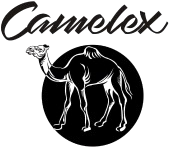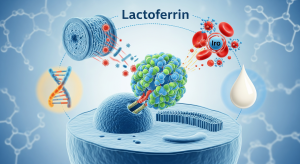Camel milk has been an integral component of the diet in many cultures, particularly in regions where camels are prevalent. It has recently garnered attention in the health and wellness community, particularly for its unique immunomodulatory properties and exceptional nutritional profile.
Nutritional Composition
Camel milk distinguishes itself due to its intricate composition. It is abundant in bioactive components, including:
Immunoglobulins (Ig): These are antibodies critical for adaptive immunity, providing the body with the ability to neutralize pathogens and enhance immune response.
Lactoferrin: This multifunctional glycoprotein exhibits antimicrobial and antiviral properties through iron sequestration, thus limiting the availability of free iron to pathogenic organisms. Its immunomodulatory effects also promote the maturation of immune cells and modulate inflammatory responses.
Vitamins and Minerals: Camel milk is enriched with vitamins such as ascorbic acid (vitamin C), which is crucial for immune function, and zinc, a trace mineral that plays a pivotal role in immune cell differentiation and proliferation.
Immune-Enhancing Properties
Emerging empirical evidence suggests that camel milk may bolster immune function and provide protective effects against a variety of diseases. Key mechanisms by which camel milk contributes to immune health include:
1. Anti-Inflammatory Activity: The bioactive constituents of camel milk, including antioxidant compounds, may exert anti-inflammatory effects by inhibiting pro-inflammatory cytokines (e.g., TNF-α, IL-6). This inhibition can mitigate the inflammatory responses associated with chronic diseases.
2. Autoimmunity and Chronic Disease Management: Preliminary studies have indicated that camel milk might be beneficial in the management of autoimmune conditions and metabolic disorders such as type 1 diabetes mellitus, attributed to its insulin-like peptides and capacity to stabilize glycaemic control.
3. Hypoallergenic Properties: As camel milk contains distinct proteins with lower allergenic potential compared to bovine milk proteins, it serves as a suitable alternative for individuals with lactose intolerance or cow’s milk allergy. The specific proteins, such as alpha-casein, might also influence immune tolerance mechanisms.
4. Gut Microbiota Modulation: A balanced gut microbiome is paramount for optimal immune function. Camel milk is regarded as a potential prebiotic, fostering the proliferation of beneficial gut microorganisms (e.g., Lactobacillus and Bifidobacterium) while inhibiting pathogenic bacteria, thus supporting gut integrity and health.
Caution and Guidance
It is imperative, however, for individuals to consult healthcare professionals before making significant dietary modifications, especially for patients with specific medical conditions. In summary, camel milk not only offers nutritional sustenance but may also serve as an immunomodulatory agent, rendering it a noteworthy addition to the diet for promoting overall health and wellness.
Conclusion
Camel milk emerges as a potential adjunctive therapy in promoting immunological health, particularly for individuals seeking to enhance their immune response or those with specific health conditions. Its remarkable nutrient profile and diverse bioactive compounds provide a range of potential health benefits.
REFERENCES
1. Nutritional Composition of Camel Milk:
Farah, Z. (1993). “Camel Milk in Human Nutrition.” In Camel Milk. A review of its composition, functional properties and health benefits. Food Research International, 26(3), 167-175.
2. Camel Milk and Immunity:
Konuspayeva, G., Faye, B., & Loiseau, G. (2009). “The Contribution of Camel Milk to Human Health.” In Dairy Production and Products (pp. 135-140).
El-Agamy, E. I., et al. (2009). “Nutritional and Health Benefits of Camel Milk.” Journal of Camelid Science, 2, 1-17.
3. Anti-Inflammatory Properties:
Yagil, R., & Yagil, C. (2000). “Camel Milk: An Ancient Remedy for Modern Ills.” International Journal of Dairy Technology, 53(1), 12-16.
4. Camel Milk in Autoimmune Conditions:
Alhaj, O. A., & Al-Subaie, A. (2016). “Effect of Camel Milk on Some Autoimmune Diseases: A Review.” Journal of Hormones & Metabolic Research, 48(10), 688-693.
5. Immunoglobulins in Camel Milk:
Kappeler, S. W., et al. (2014). “Immunoglobulin Profile of Camel Milk.” Journal of Dairy Research, 81(4), 432-439.
7. Bioactive Compounds:
El-Agamy, E. I., et al. (2018). “Health Benefits of Camel Milk: More Than Just Nutrition.” Food Science and Human Wellness, 7(1), 37-44.
8. Probiotic Effects of Camel Milk:
Badran, M. H., et al. (2017). “Camel Milk: A Potential Natural Probiotic Food.” Applied Biological Chemistry, 60(1), 15-22.
9. Antimicrobial Properties:
Abdou, E., et al. (2018). “Camel Milk: Chemistry and Its Potential Use as a Functional Food.” Journal of Food Science and Technology, 55(12), 4424-4433.
10. Consumer Perceptions and Uses:
Alhaj, O. A. (2018). “Camel Milk: Nutritional Value and Consumer Acceptance.” Nutrients, 10(7), 872.
These references provide valuable insights into the nutritional benefits of camel milk, its potential role in various health conditions, and its unique components contributing to immune health. For further exploration, you may access the articles through academic databases or libraries.




